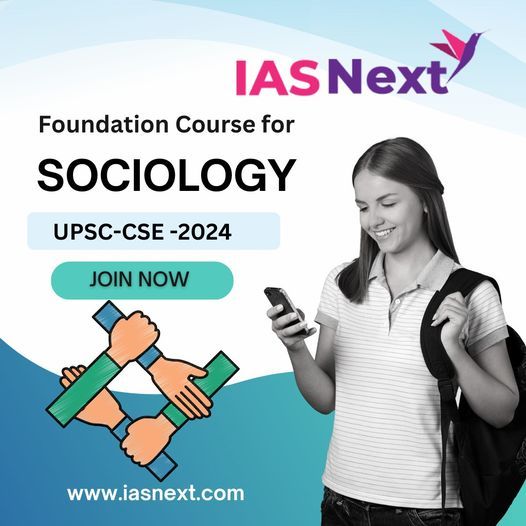Don't wanna be here? Send us removal request.
Text
Research Methods & Analysis
Sociologists, as scientists, investigate human social behaviors, yielding valuable insights into diverse interactions across various social dimensions. Their scope ranges from examining small-group dynamics like families to analyzing significant institutions such as governments and entire cultures. To ensure the accuracy and significance of their research findings, it is crucial…
View On WordPress
0 notes
Text
Karl Marx: Sociological Thinkers
“The history of all hitherto existing society is the history of class struggle.” These are the first words in the section “Bourgeois and Proletarians” of The Communist Manifesto. Written by Karl Marx and Frederick Engels and published in 1848, The Communist Manifesto is a foundational text in establishing Marxism, which underpins the social and political philosophies of Karl Marx. Born in 1818,…

View On WordPress
0 notes
Text
Talcott Parsons: Sociological Thinkers
Talcott Parsons was born on 13th December 1902. His teachings influenced the life of many individuals in the 20th century. You should be influenced by his life after going through this article. It will help you to understand his life personally. He was residing in Colorado Springs, Colorado. He founded many social theories, and the most famous one is his theory of the sick role. He made major…

View On WordPress
0 notes
Text
Robert K. Merton: Sociological Thinkers
Robert K. Merton was born Meyer R. Schkolnick in Philadelphia into a working class Eastern European Jewish Immigrant family. He changed his name at the age of 14 to Robert Merton, which evolved out of a teenage career as an amateur magician as he blended the names of famous magicians. Robert K. Merton attended Temple College for undergraduate work and Harvard for graduate work, studying sociology…
View On WordPress
0 notes
Text
George Herbert Mead – Father of Symbolic interactionism
George Herbert Mead: Despite his reserved nature, this unassuming individual who keenly observed the world without much regard for his own hypotheses ultimately forged one of the most significant contributions to 20th-century social theory. His enduring legacy looms large, and his concept of a socially constructed ‘self’ has become a cornerstone often overlooked in contemporary discussions. If…
View On WordPress
0 notes
Text
Social Stratification & Mobility
Variation is a fundamental characteristic of human societies, with individuals and social groups exhibiting distinct differences. This differentiation is a prevalent aspect of society, and it inherently gives rise to diversity and inequality. Consequently, societal stratification is a universal phenomenon, manifesting itself in all human societies. In these stratified systems, individuals are…
View On WordPress
0 notes
Text
Works and Economic Life
The subject of work and economic life holds significant importance in the context of the UPSC exam. It provides insights into diverse facets of economic activities, employment dynamics, and the labor force. This knowledge aids in the examination of industry operations, job generation, and overall economic advancement, all of which bear immense significance for the Indian economy. Social…
View On WordPress
0 notes
Text
Politics and Society – Sociology
Politics and Society: Political sociology opens up a fresh perspective in the realm of political analysis. It delves into the intricate web of interactions and connections between society and politics, exploring the dynamic relationship between a political system and its broader social, economic, and cultural context. This field scrutinizes the dynamics of social power and places a spotlight on…
View On WordPress
0 notes
Text
Religion and Society
Religion and Society, intricately entwined components, have left an indelible mark on civilizations, molded cultural landscapes, and steered the course of human history. Religion, comprising intricate belief systems and practices, and society, providing the framework for human interaction and organization, share a profound and multifaceted relationship that extends far beneath the surface. This…
View On WordPress
0 notes
Text
Sociology Optional Subject for UPSC
“Society is not a mere sum of individuals. Rather, the system formed by their association & represents a specific reality which has its own characteristics” – Emile Durkheim Selecting the ideal optional subject for UPSC can significantly impact your performance in the mains exam. Your choice should prioritize achieving maximum marks, serving as a fallback when General Studies scores are not as…
View On WordPress
0 notes
Text
DEMOCRACY
Advantages and Disadvantages of Democracy
Democracy or democratic government is a form of government wherein the people or citizens of a country have the freedom to choose their leaders and get involved in governance. Unlike a monarchy or oligarchy where an individual has absolute power or a small group of individuals have the power, a democracy is a government for and by the people.
Howev…
View On WordPress
#BEST COACHING IN LUCKNOW#Disadvantages of Democracy#IAS Next#opposing viewpoints#positives and negatives#www.iasnext.com
0 notes
Text
CHIPKO MOVEMENT
The Chipko movement or Chipko Andolan refers to a forest conservation movement. Chipko–type movements date back to 1730 AD when in Khejarli village of Rajasthan, 363 people (Hindu‘s) sacrificed their lives to save khejri trees. In modern India, it began in 1973 in Uttarakhand (then in Uttar Pradesh) and went on to become a rallying point for many future environmental movements all over the world.
View On WordPress
0 notes
Link
1 note
·
View note
Text
How to read the Hindu newspaper.
IAS Next
https://www.iasnext.com/Images/Download/how-to-read-THE-HINDU-..-57.pdf
1 note
·
View note

